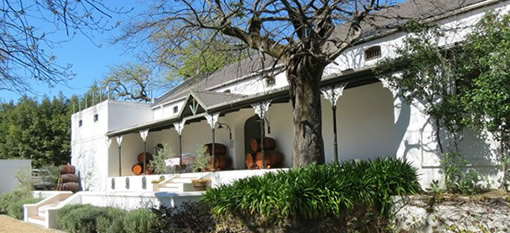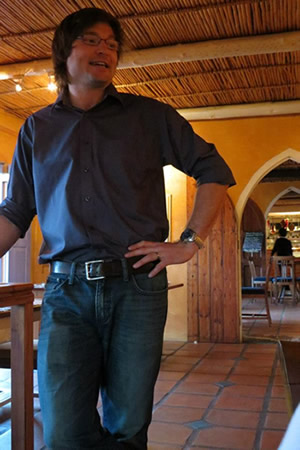Traditionally served as a dessert wine, port wine has emerged as the sipping alternative to wine and cocktails. It’s a fortified wine, produced in the Demarcated Region of Douro, Portugal, and although many port-style wines are made around the world, the strict usage of the term Port or Porto refer only to wines produced in Portugal.
South Africa has been producing fortified wines for many years now and although we can not call it Port, we have some fantastic tawny and vintage Ports, easily as good as the Portuguese.
My love for South African Port was rekindled at a recent 101 Port tasting at Mont Rochelle in Franschhoek. Darran Stone, the winemaker and viticulturist at Mont Rochelle, hosted an informal Port tasting evening, where guests had the opportunity to taste 11 Port and sweet red wines from across South Africa. The wines were also paired with some delectable canapés, prepared by the Country Kitchen Restaurant at Mont Rochelle.
According to Darran there are four main types of port:
- Ruby Port is designed to be drunk quite young. The wine rarely receive any wood contact and has a fruity character.
- Vintage Port, as the name suggest, are wines of superior quality, produced in exceptionally great years from distinct areas within the region. Vintage port is kept in wooden barrels for two to three years of oxidative aging before it is bottled.
- Late bottled Vintage Port, or LBV, is from a single year, and from years of excellent quality and is aged longer in wood barrels than is the case with vintage port.
- Generally speaking, blended Tawny types vary considerably and they are aged using the oxidative process. Tawny Reserve port ages for a minimum of seven years in wooden barrels, where it takes on a nutty flavor. Other tawnies are a blend of several different vintages and the average age is printed on the label.
The 11 port-style wines in the line-up came from various regions across South Africa and varied in vintages. Here are my thought on the wines we tasted.
My Wyn – My Maber 2011: Only 2 barrels of this wine was produce by Jacoline Haasbroek from My Wyn in Franschhoek. The wine was fortified with 3 year old KWV brandy and aged for 10 months in barrel. It’s a well balanced wine that’s not overly sweet.
Price: R100
Score: 15.5/20
Mont Rochelle – Straw Syrah 2010: Low in alcohol at 13.5%. The grapes was dried out for 10 days on straw in the sun. The nose was a bit balsamic but the wine was well balance on the palate.
Price: Not for sale. Only 196 bottles made on an experimental bases
Score: 16/20
Solms-Delta – Gemoedsrus 2009: Made from Shiraz grapes that have been desiccated on the vine and fortified with grappa. Low in sugar at 88g/l. Something different that stands out from the crowd.
Price: R230
Score:15/20
Holden Manz – Good Sport 2009: The name ”Good Sport” plays on the port name, which can only be used if made in the Demarcated Region of the Douro, Portugal, as mentioned earlier. The wine is sweet, palatable but lacks tannin structure.
Price: R180
Score:14/20
My Wyn – My Robyn 2009: The wine spend 30 months in barrel. Nice structure with a slight zesty taste. Great value for money!
Price: R100
Score:16.5
Overgaauw – Cape Vintage 1993: Overgaauw was the first producer in South Africa to bottle Torigo National in South Africa. The wine has a slight liquorish taste to it and are low in sugar at 63g/l. Looking for a bargain? Then this is it!
Price: R130
Score:17.5/20
Landskroon – Port 1995: A fruity wine made from Tinta Barocca grapes. It’s full and fat on the mid-palate with good tannin structure and a dry finish.
Price: R100
Score:16/20
Muratie – Ben Prins 2009: Smooth smokey and lingering. My personal favourite out of the lot.
Price: R170
Score:18/20
Niepoort – Ruby NV: This one come straight from the Douro region in Portugal. It’s a fuller and riper wine compared to the South African ports.
Price: R100
Score:16.5/20
Niepoort – LBV 2004: From the same Portuguese producer, bottled in 2008. A bit dryer on the tongue but good structure.
Price: R160
Score:15.5/20
De Krans – Cape Tawny: From one of South Africa’s top fortified wine producers. The wine is dark in colour and quite voluptuous. Velvety and lingering.
Score: 16/20
Price:R130
[listgallery id=”58497″]




